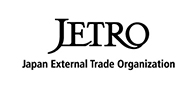Key Findings:
A complete market research report, including forecasts and market estimates, technologies analysis and developments at innovative firms within the Investment & Securities Industry. Gain vital insights that can help shape strategy for business development, product development and investments.
Key Features:
-
Business trends analysis
-
In-depth industry overview
-
Technology trends analysis
-
Forecasts
-
Spending, investment, and consumption discussions
-
In-depth industry statistics and metrics
-
Industry employment numbers
Additional Key Features Include:
Industry Glossary
Industry Contacts list, including Professional Societies and Industry Associations
Profiles of industry-leading companies
Key Questions Answered Include:
-
How is the industry evolving?
-
How is the industry being shaped by new technologies?
-
How is demand growing in emerging markets and mature economies?
-
What is the size of the market now and in the future?
-
What are the financial results of the leading companies?
-
What are the names and titles of top executives?
-
What are the top companies and what are their revenues?
This feature-rich report covers competitive intelligence, market research and business analysis—everything you need to know about the Investment & Securities Industry.
Plunkett Research Provides Unique Analysis of the Following Major Trends in the Investment & Asset Management Industry
-
Major Trends Affecting the Investment & Asset Management Industry
-
Investment & Asset Management Industry Overview
-
Basel III, Dodd-Frank Act and Volcker Act Increase Regulation/European Solvency II and MiFID 2 Take Effect
-
Non-Banking Alternatives Grow in Lending and Crowdfunding
-
Investment Market Evolves in China
-
Aging Populations, Baby Boomers Create Opportunities/U.S. Pension Accounts Top $40.0 Trillion
-
Employers Make 401(k) Enrollment Automatic
-
Investment Firms and Banks Compete for Clients in High-Net-Worth Households
-
ETFs Expand and Take Market Share from Mutual Funds/Mutual Fund Managers Are Forced to Change
-
Online Brokers Also Provide Storefront Locations/Trades Are Free
-
Hedge Funds Play a Major Role in Financial Markets Including Derivatives, Lending and Insurance/Quantitative Analysis Widely Adopted
-
Private Equity Funds and Venture Capital Funds Attract Major Investors
-
Annuity Account Managers Create New Product Strategies
-
Stock Exchanges Evolve/High Speed Technologies Force Massive Changes
-
Financial Technology (FinTech) Enables Online Payments, Lending, Insurance and Robo Advisors
-
Artificial Intelligence (AI) Powers Investment Strategies
-
Cryptocurrencies and Blockchain Explained
-
Investment Product Facts
Plunkett Research Provides In-Depth Tables for the Following Investment & Asset Management Industry Statistics
-
Investment & Securities Industry Statistics and Market Size Overview
-
Sales, Profits & Stockholders' Equity, All Manufacturing Corporations, U.S.: 1990-Q2 2024
-
Estimated Ownership of U.S. Treasury Securities: 2015-2023
-
Public Debt Securities Held by Private Investors, U.S.: 1985 - September 2024
-
Average Interest Rates of 3-Month & 10-Year U.S. Treasuries: 1990-2024
-
Retirement Benefits in the U.S.: Access, Participation and Take-Up Rates, March 2024
-
Employment in the Investment & Securities Industry, U.S.: 2018 - October 2024
-
Securities, Commodity Contracts & Other Financial Investment Activities, Estimated Revenue for Employer Firms, U.S.: 2019-2024



















